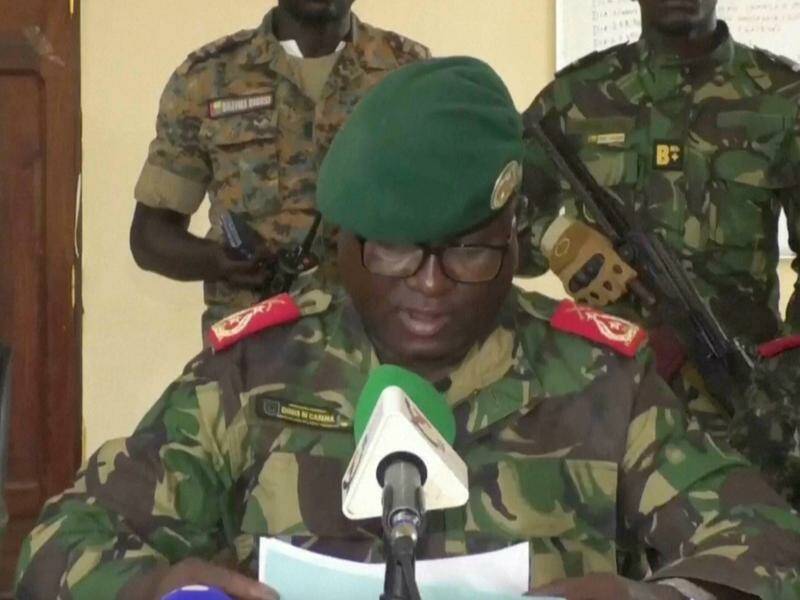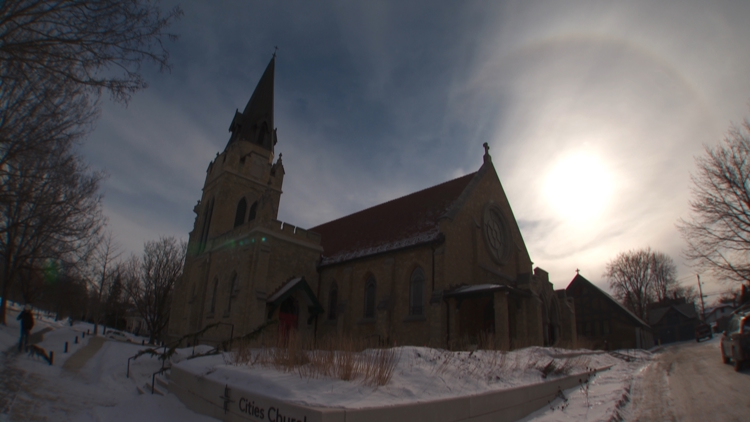
Guinea-Bissau’s military has appointed General Horta Nta Na Man as the transitional president following a swift coup that ousted President Umaro Sissoco Embalo. The takeover occurred just one day before the announcement of provisional results from a closely contested presidential election. The military, under the self-declared “High Military Command for the Restoration of Order,” cited a destabilization plan involving politicians and drug traffickers as justification for their actions, though details remain sparse.
The coup marks the ninth such event in West and Central Africa within the past five years, reflecting ongoing instability in Guinea-Bissau, a nation notorious for its role in the cocaine trade. In a televised address on March 6, 2024, military officials announced the removal of Embalo, stating that Nta would lead the country for one year. Footage revealed Nta, adorned in military uniform, taking an oath during a ceremony attended by other military leaders.
Witnesses reported gunfire in the capital, Bissau, prior to the coup announcement, particularly near the electoral commission headquarters and the presidential palace. Embalo himself reached out to French media, confirming he had been deposed, although there has been no information regarding his current status or whereabouts since the coup.
The African Union chairman, Mahmoud Ali Youssouf, condemned the military takeover via social media, demanding the immediate release of Embalo and all detained officials. Additionally, the Economic Community of West African States (ECOWAS) expressed concern over the reported arrests of Embalo, senior officials, and electoral personnel.
Despite the upheaval, central Bissau remained mostly quiet following the coup. Soldiers patrolled the streets, and many residents chose to stay indoors even after an overnight curfew had been lifted. Businesses and banks were closed, reflecting the tense atmosphere in the city.
In the lead-up to the coup, Fernando Dias, a political newcomer and Embalo’s main challenger in the election, accused the president of orchestrating a “false coup attempt” to disrupt the electoral process, fearing a loss. The coalition supporting Dias has since called for the release of election results from the March 3 vote and demanded the release of former prime minister Domingos Simoes Pereira, who was reportedly detained on the same day.
Protests erupted outside the location where Pereira is believed to be held, prompting security forces to use tear gas to disperse demonstrators. Reports indicated that live ammunition was fired during these confrontations, although no casualties have been confirmed.
Guinea-Bissau’s political landscape has been marred by military interventions since the country gained independence from Portugal in 1974. The nation has experienced at least nine coups or attempted coups, and under Embalo’s rule, the cocaine trade reportedly flourished. He claimed to have survived three coup attempts during his presidency, amidst accusations from critics that he has fabricated crises to justify crackdowns on dissent.
Election observers from the African Union and ECOWAS expressed “deep concern” over the military’s actions, particularly the arrests of electoral officials, and called for their immediate release. Former Nigerian president Goodluck Jonathan, who was in Guinea-Bissau as part of an observation mission, could not be reached for comment on his status.
The international community is closely monitoring the situation, with regional leaders calling for a return to democratic governance and stability in Guinea-Bissau.






